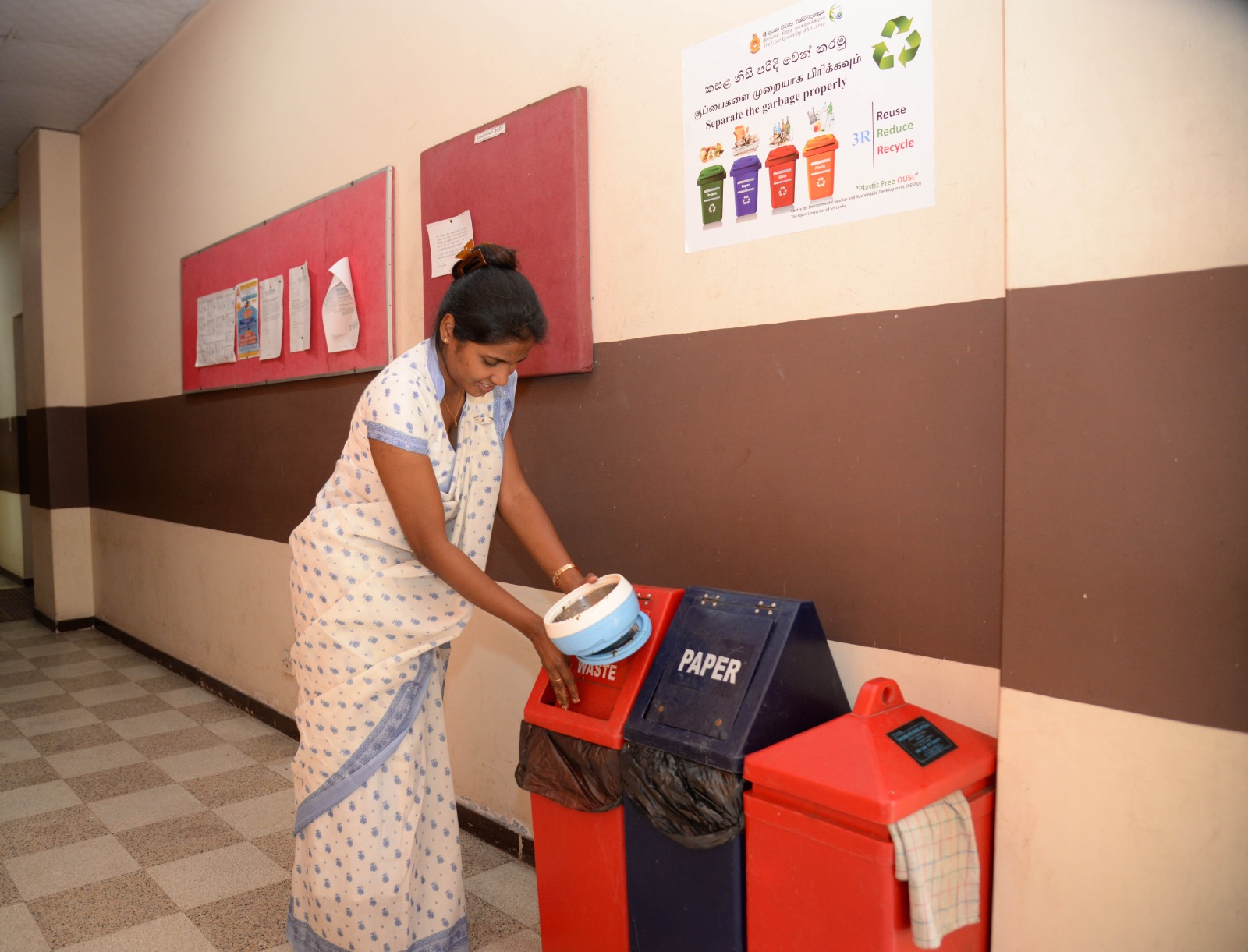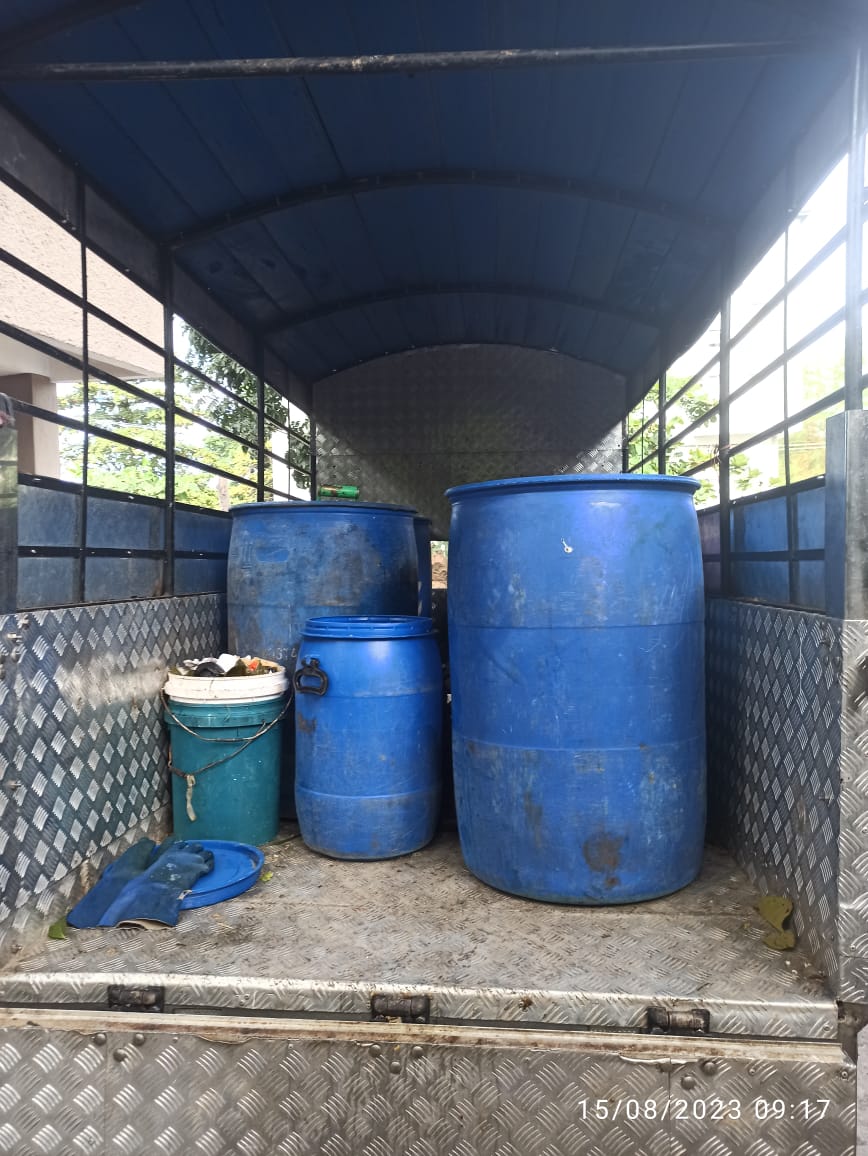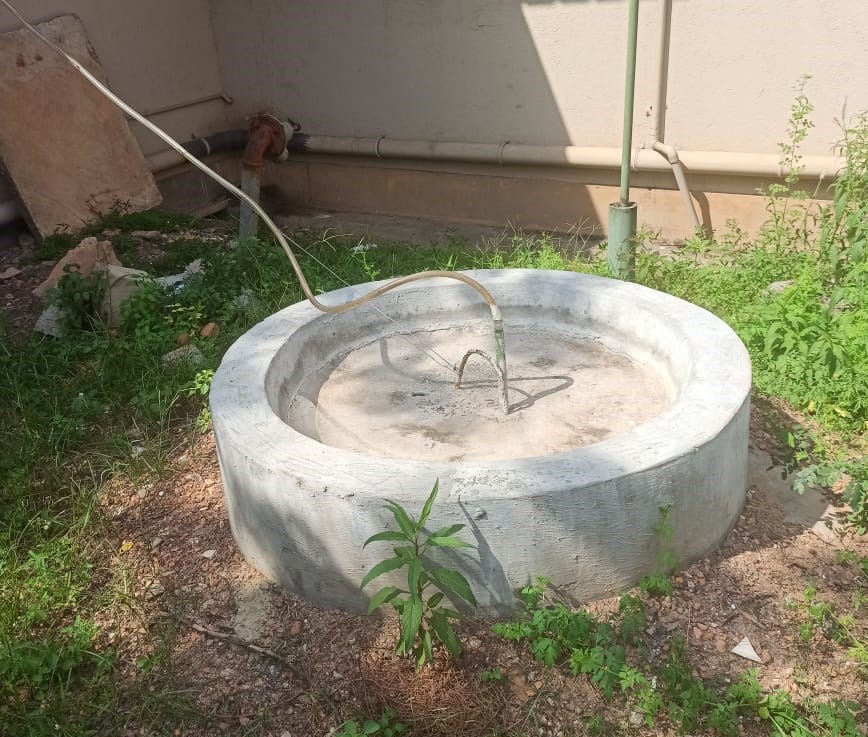In the course of the university’s daily activities, a significant amount of organic waste is generated, encompassing food scraps, yard waste, food leftovers, and other natural materials. Recognizing the importance of responsible waste management, The Open University of Sri Lanka has adopted a series of proactive strategies. These initiatives are not only instrumental in reducing operational costs but also in championing environmental sustainability and fostering a cleaner and healthier campus environment. Notably, the organic waste generated can be primarily categorized into two distinct groups: food waste and green waste.
FOOD WASTE
45 kg food waste generated daily
Among those :-
20 kg given to livestock farm
25 kg utilized through biogas plant
Daily, around 45 kg of food waste is generated from canteens, events, packed lunches, and diverse culinary choices.
The organic food waste is segregated and disposed of in designated bins located throughout the university’s premises and canteens.
These food waste is provided to livestock farms and utilized to make energy through two biogas plants. Around 20 kg food waste is given to livestock farms to feed animals and energy is generated through the remaining 25 kg. Generated energy through the biogas plant used to boil water in canteens.

Disposing of food waste into designated bins to segregate food waste from other types of waste

Supplying collected food waste to livestock farms to feed animals
Daily 20 kg

Biogas plant of Open University
Daily 25 kg of food waste utilize in biogas unit to generate electricity
Green Waste
Monthly 3000 kg generated
Monthly 300 kg of compost produced
Daily cleaning of university premises is done to maintain a cleaner and pleasing environment throughout the campus. Through gardening, around 3000 kg of green waste is generated monthly.
Collected green waste is distributed to a compost hut, compost bins, and composting areas where it undergoes decomposition to generate compost. Additionally, compost bins are used to further facilitate the composting process. This sustainable procedure results in around 300 kg of compost monthly which serves as a valuable fertilizer for the plants throughout the university, fostering growth and health. This effective green waste management not only ensures a cleaner surrounding environment but also significantly reduces operational costs by recycling organic materials, promoting sustainability, and minimizing the need for external fertilizers.
Daily cleaning of univerisity premises

